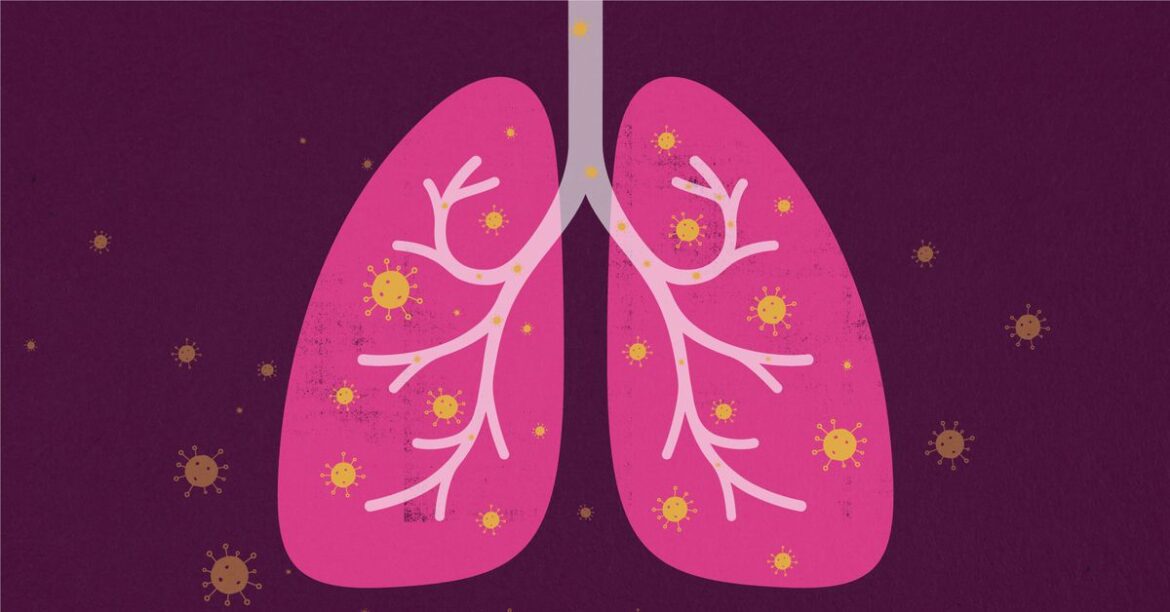The Covid-19 pandemic has raised questions about whether and how lung is affected after the elimination of coronavirus infection, especially in young people of the general population with less severe disease.
According to the finding of new investigations, the COVID-19 infection does not seem to affect the lung function of young adults.
These findings were presented recently at the International Congress of the Special Special Society ‘Virtual’.
In the first study to investigate the impact of COVID-19 infection in pulmonary function, researchers led by Dr. Ida Mogensen, a postdoctorate partner at the Karolinska Institute, Stockholm, Sweden, found that even patients with asthma showed no A statistically significant. Impairment in pulmonary function, although there was a tendency towards slightly lower measurements for the amount of air, they could exhale by force in a second known as the volume of forced expiratory air in a second (FEV1), which is one of the measures of pulmonary function.
A second study presented at Congress on Sunday showed that lung function in children and adolescents also served after an infection of Covid-19, apart from those who experienced a severe infection.
Dr. Mogensen said: “The Covid-19 pandemia has raised questions about whether and how lung is affected after the authorization of coronavirus infection, especially in young people from the general population with less serious illness, so far, This is not known. “
Dr. Mogensen and colleagues of her gathered information from 661 young people with an average age of 22 who were part of a great study that enrolled children born between 1994 and 1996 in Stockholm, and that have been followed by researchers since then. The most recent prepandemic clinical review was carried out between 2016 and 2019. The monitoring exams of Covid-19 were carried out between October 2020 and May 2021. The data collected included pulmonary function measurements, inflammation and White blood cells called eosinophils. , which are part of the immune system.
Of the 661 participants, 178 (27 percent) had antibodies against SARS-COV-2 indicating they had been infected. The researchers measured FV1, FVC (forced vital capacity, which represents the volume of air in the lungs that can be exhaled after taking the deepest possible breathing), and the FEV1 / FVC ratio, which is a narrow respiratory tract indicator. They calculated the changes in the pulmonary function between the period before the pandemic and during the pandemic. Then they compared the percentage change with the participants who had not been infected.
“Our analysis showed a function similar to the lung regardless of the history of Covid-19,” said Dr. Mogensen. “When we included 123 participants with asthma in the analysis, 24 percent had had Covid-19 tended to have a slightly lower pulmonary function, but this was not statistically significant.”
There was no difference in lung function among patients who had Covid-19 with respect to eosinophils, inflammation indicators, allergy responses or use of inhaled corticosteroids.
“These results are tranquilizable for young adults, however, we will continue to analyze data from more people. In particular, we want to look more closely at people with asthma, since the group in this study was quite small. We are also curious as soon as possible. A If the duration of time after the infection is important, as well as the severity of the disease and the symptoms. “
The second study, presented by Dr. Anne Schlegtendal, a specialist in pediatric and adolescent medicine and pediatric pulmonology at the University Children Hospital, Ruhr-University-Bochum, Germany, analyzed the long-term effects of COVID-19 infection Between August 2020 and March. 21 In 73 children and adolescents between five and 18 years old.






